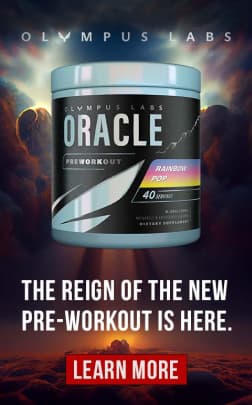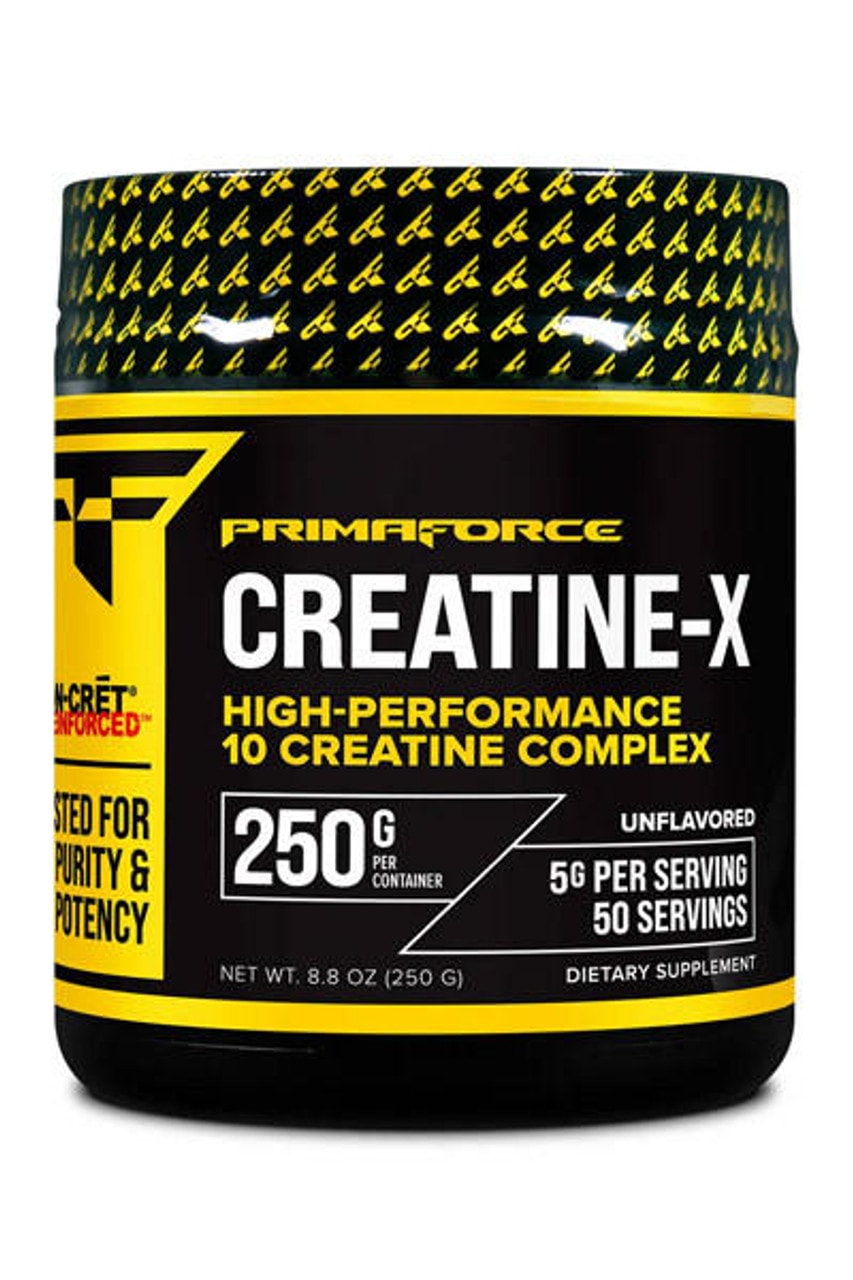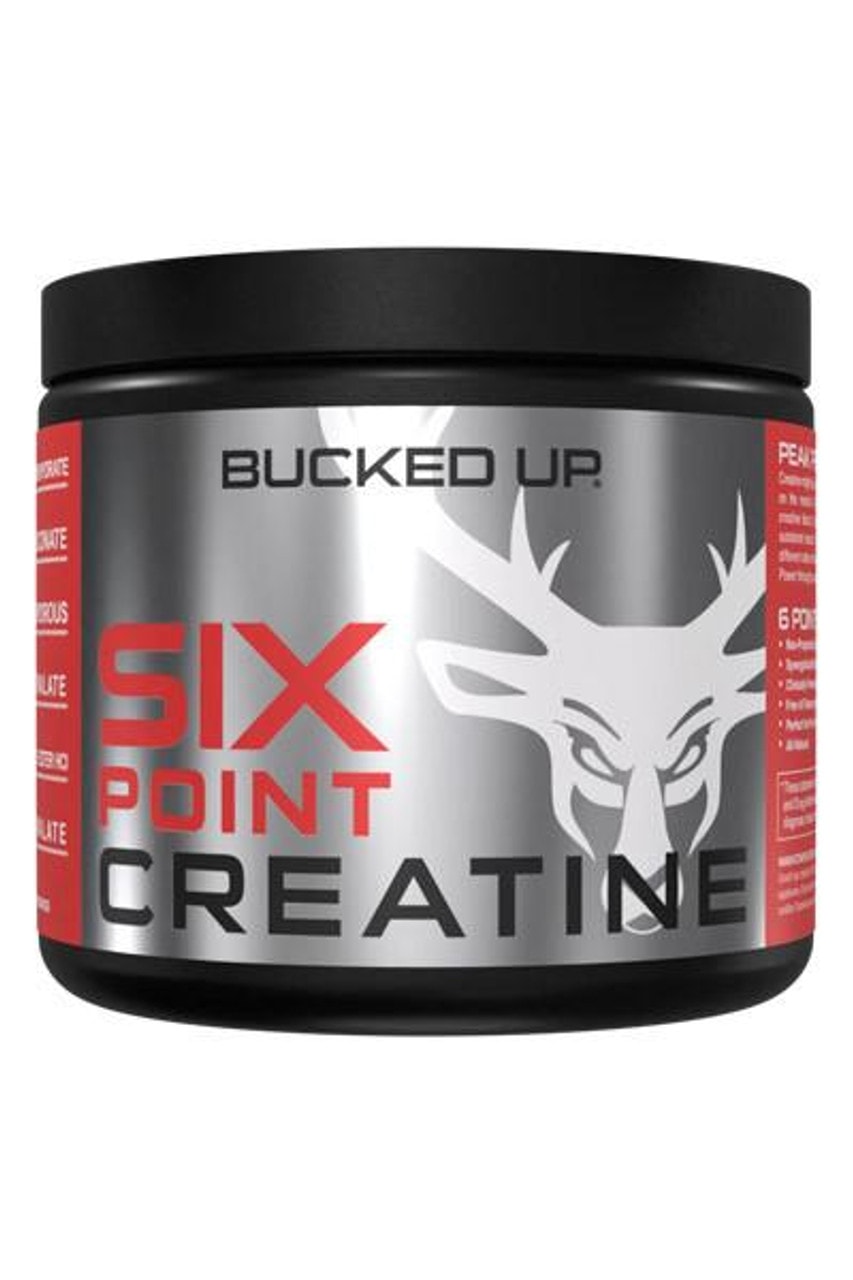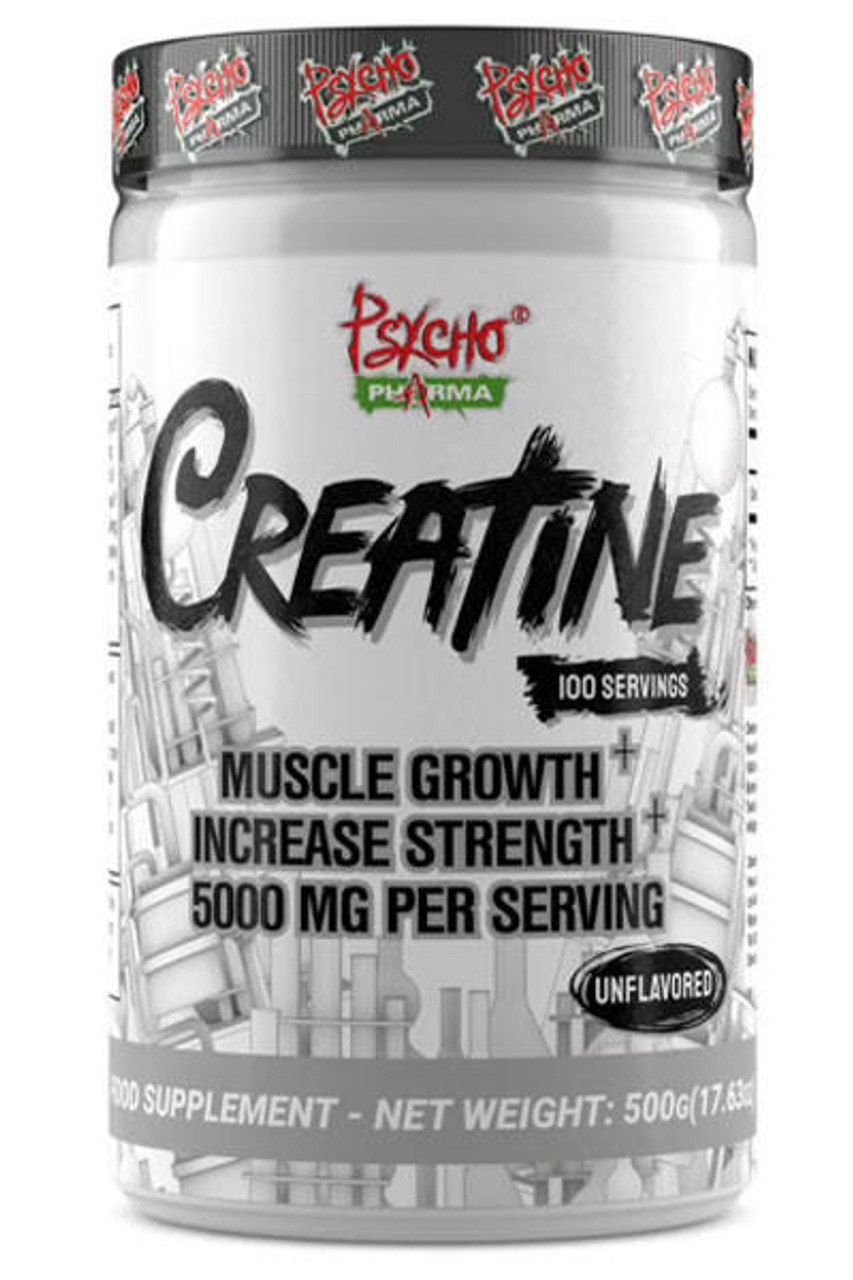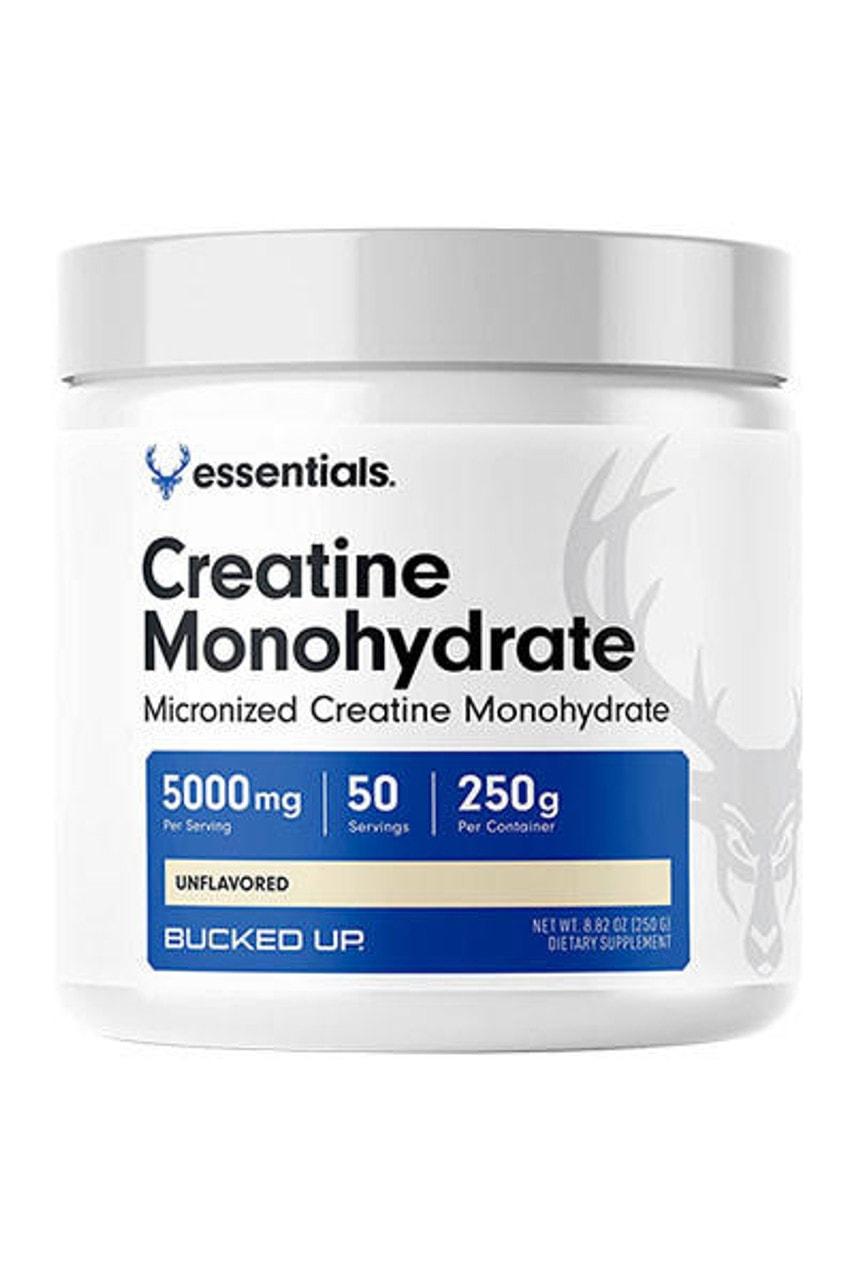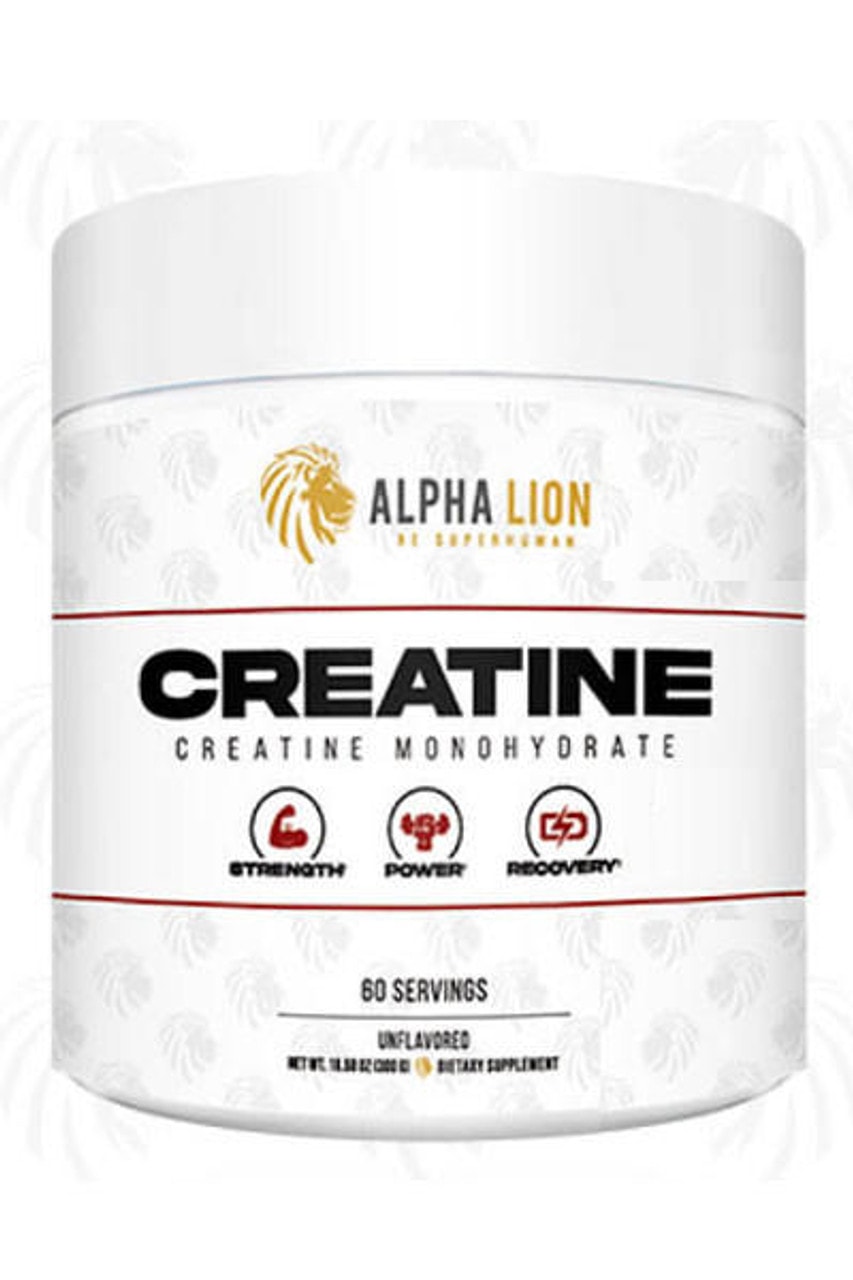Does Creatine Make You Gain Weight
Posted by Leonard Shemtob on Nov 13, 2024
Creatine is a popular supplement used by athletes, bodybuilders, and fitness enthusiasts because it helps improve strength, muscle growth, and exercise performance.
However, one common question arises: does creatine make you gain weight? In this article, we'll explore the truth behind this common concern.
This guide will discuss how creatine works in the body, the types of weight gain it may cause, and what you should consider if you're thinking about using it.
[Related Article] Does Creatine Help You Lose Weight? The Truth Revealed
Short Summary
- What Creatine Does: Creatine is a supplement that boosts muscle strength, growth, and exercise performance.
- How It May Cause Weight Gain: Creatine can make muscles hold more water, which may show up as temporary weight gain.
- Muscle vs. Fat: The weight gained from creatine is usually water and muscle, not fat, so it’s different from typical weight gain.
- Temporary Water Weight Gain: The water weight often goes away if you stop taking creatine.
- Top Creatine Recommendation: Try our recommended creatine supplement, Creatine-X, to start your fitness journey with a high-quality option designed for strength and muscle growth.
Does Creatine Make You Gain Weight? (Short Answer)
Yes, creatine can cause weight gain, but it's usually due to water retention in your muscles. When you take creatine, your muscles hold onto more water, which can make you weigh a bit more. This weight gain is typically temporary and doesn't mean you're gaining fat.
In some cases, creatine can also help you build more muscle over time, which could lead to permanent weight gain from muscle growth. So, while creatine may make the scale go up, it's usually a sign of your muscles getting stronger, not adding unwanted fat.
What is Creatine?
Creatine is a natural substance found in your muscles and certain foods. It helps you provide energy for short bursts of intense activity, like sprinting or lifting weights.
When you take creatine as a supplement, it increases the amount of creatine in your muscles, which can help you work out harder and longer. This leads to better performance, more muscle growth, and improved strength over time.
Benefits of Creatine
- Improved Strength: Creatine helps you lift heavier weights, leading to better workouts.
- More Energy: It gives your muscles more energy, so you can train harder and longer.
- Muscle Growth: Creatine helps your muscles grow by boosting your workout performance.
- Faster Recovery: It can help your muscles recover quicker after intense exercise.
- Better Performance: Creatine can improve performance in short, intense activities like sprinting or jumping.
[Related] Does Creatine Expire? The Truth About Shelf Life and Effectiveness
How Does Creatine Work?
Creatine works by helping your muscles make more energy during intense activities. When you engage in short, intense activities, your body relies on a molecule called ATP (adenosine triphosphate) for energy.
However, ATP is used up quickly, especially during high-intensity workouts. This is where creatine comes into play.
When you consume creatine as a supplement, it accelerates the amount of creatine phosphate stored in your muscles.Creatine phosphate acts as a reserve that can quickly convert back into ATP when your body needs extra energy.
This means that with more creatine in your muscles, you can produce ATP more rapidly, allowing you to perform better during short bursts of intense activity. Additionally, creatine helps improve muscle recovery after exercise. It reduces muscle damage and soreness.
Does Creatine Really Make You Gain Weight?
Yes, creatine can cause weight gain, but it's usually from water. When you take creatine, your muscles hold onto more water, which can make you weigh more. This weight gain isn't fat—it's just extra water in your muscles.
Some people may also gain a little muscle mass over time with regular use of creatine. So, while the scale may go up, it's a sign of stronger muscles, not fat.
How Does Creatine Cause Water Weight?
Creatine causes water weight gain primarily because it draws water into your muscle cells. When you start taking creatine, it increases the concentration of creatine in your muscles.
This higher concentration creates an osmotic effect, meaning that water is pulled into the muscle cells to balance the concentration of creatine and water inside and outside the muscle cells.
Most people experience an initial weight gain of about 2 to 4 pounds within the first week of starting creatine supplementation. This increased weight is mostly due to water retention, not fat gain. The water stored in your muscles can make them look fuller and more defined, which is often seen as a benefit in bodybuilding and fitness.
Additionally, during the "loading phase" of creatine supplementation—when higher doses (around 20 grams daily) are taken for several days—water retention can be more pronounced. However, this effect is temporary, and if you stop taking creatine, your body will gradually return to its normal water balance.
Does Creatine Cause Fat Gain?
No, creatine does not cause fat gain. Research shows that while creatine can lead to some initial weight gain, this is primarily due to water retention in the muscles, not an increase in body fat. Studies have found that creatine supplementation does not significantly change body fat percentage.
For example, one study indicated that adults who were supplemented with creatine lost about 0.5 kg more fat mass compared to those who did not take it, although this was not statistically significant.
Another review showed that combining resistance exercise with creatine supplementation resulted in a notable reduction in body fat percentage without increasing fat mass.
Does Creatine Increase Muscle Mass?
Yes, creatine can help increase muscle mass, especially when combined with resistance training. Research shows that creatine supplementation leads to significant gains in muscle size and strength.
Studies show that creatine enhances the body's ability to produce energy during high-intensity activities, leading to improved performance and muscle growth. This happens primarily through its role in increasing the availability of phosphocreatine in muscles, which helps regenerate ATP (the primary energy molecule for muscle contractions) during exercise.
Some other studies have shown that creatine users often experience enhanced strength and power, which can lead to more effective workouts, greater muscle growth, and better training adaptations. On average, people supplementing with creatine see around 8-14% greater strength gains than those who do not.
In addition, creatine helps promote muscle hydration. It draws water into muscle cells, contributing to a "fuller" appearance and potentially increasing muscle size over time. This process, known as "cell volumization," helps create an environment conducive to muscle growth.
Additionally, a study involving older adults showed that those who supplemented with creatine during resistance training experienced greater increases in lean muscle mass compared to those who did not take it.
Thus, creatine doesn't directly build muscle on its own, but it supports muscle growth by enabling better performance in the gym, facilitating increased training volume and intensity, and aiding in muscle recovery.
Increased Caloric Intake
Creatine may improve workout performance and recovery, leading to more frequent and intense workouts. This could increase your appetite, causing you to eat more. If you consume more calories than your body burns, it could result in weight gain, including both muscle and fat.
However, creatine itself doesn’t directly cause fat gain. One scoop of creatine per day has no calories, and if you maintain a balanced diet and exercise regularly, it's unlikely that creatine will lead to fat gain.
[Related] Creatine Vs Pre-Workout: Which One is Better?
How to Distinguish Water Weight from Muscle Gain
It can be tricky to tell if weight gain from creatine is due to water retention or actual muscle growth. Here are some tips to help you tell the difference:
- Check for Bloating: Water weight often causes a feeling of bloating or puffiness in the muscles. If you notice this, it's likely water retention rather than muscle gain.
- Track Your Strength and Performance: If your strength or workout performance improves along with the weight gain, it's a good sign that you're gaining muscle, not just water weight.
- Look at Muscle Definition: Water weight can make muscles look fuller but not necessarily more defined. If your muscles appear more defined or harder, you may be gaining muscle rather than water weight.
- Consistency Over Time: Water weight often fluctuates quickly, especially in the first few weeks of creatine use. Muscle gain, on the other hand, tends to increase more gradually.
How to Reduce Water Weight from Creatine
If you're experiencing water retention from creatine and want to reduce it, here are a few tips:
- Stay Hydrated: Surprisingly, staying well-hydrated can help reduce water retention. Drinking plenty of water helps flush out excess fluids.
- Moderate Sodium Intake: Excessive sodium can lead to water retention. Reduce your intake of processed foods and salty snacks.
- Skip the Loading Phase: Instead of taking a high dose of creatine (20-25 grams) during the loading phase, start with a lower maintenance dose of 3-5 grams per day.
- Exercise Regularly: Regular physical activity helps your body process and release excess water. The more you work out, the less likely you are to hold onto extra water.
What About Creatine and Weight Loss?
Creatine supplements themselves do not directly cause weight loss. However, it can indirectly contribute to weight loss by helping you build muscle mass. More muscle mass translates to a higher metabolic rate, which can help you burn more calories at rest.
Additionally, creatine allows you to push harder during your training, leading to better results in terms of fat loss. More energy and endurance mean you can work out longer or lift heavier, increasing the calorie burn during exercise
For example, one review showed that older adults who took creatine while exercising experienced a greater reduction in body fat percentage compared to those on a placebo.
[Related] Before and After Creatine: Real-Life Results and Benefits
Other Potential Side Effects of Creatine
While creatine is generally safe for most people, there are a few potential side effects to be aware of:
- Gastrointestinal Issues: Some people may experience digestive issues like diarrhea or stomach cramps, especially when taking high doses.
- Dehydration: Creatine can cause your muscles to hold onto extra water, which might increase your risk of dehydration.
- Kidney Concerns: While creatine is safe for healthy individuals, there have been concerns about its effect on kidney function, especially in people with pre-existing kidney issues.
- Muscle Cramps: In rare cases, creatine may increase the risk of muscle cramps.
Best Creatine Supplements
1- Creatine-X by PrimaForce
Creatine-X by Primaforce is a comprehensive creatine supplement designed for athletes aiming to enhance their physical performance.
This advanced formula features a blend of 10 different types of creatine, providing 5 grams of creatine per serving with a total of 250 grams per container. This combination supports muscle growth, recovery, and overall strength.
Key Benefits
- It increases your strength.
- It helps improve power and endurance.
- It supports increased muscle mass.
- It accelerates your muscle recovery.
Key Ingredients
- Creatine Monohydrate
- Creatine Chelate
- CON-CRET® Creatine HCl
- Creatine Citrate
- Creatine Anhydrous
- Creatine AKG (2:1) Creatine Ethyl Ester HCl
- Creatine Pyruvate
- Di-Creatine Malate
- Tri-Creatine Malate
2- Bucked Up Six Point Creatine
Bucked Up Six Point Creatine is a creatine supplement designed to support muscle growth, recovery, and strength. It features a blend of six different types of creatine: Creatine Monohydrate, Creatine Gluconate, Creatine Anhydrous, Tri-Creatine Malate, Creatine Ethyl Ester HCI, and Di-Creatine Malate. Each form of creatine contributes to improved strength, energy production, and muscle mass.
Key Benefits
- It improves lean muscle mass.
- It accelerates muscle recovery.
- It boosts your strength.
- It enhances your endurance.
- It helps reduce your fatigue.
- It supports your overall hydration.
- It promotes cognitive functions.
- It improves your overall athletic performance.
Key Ingredients
- Creatine Monohydrate
- Creatine Gluconate
- Creatine Anhydrous
- Tri-Creatine Malate
- Creatine Ethyl Ester HCL
- Di-Creatine Malate
3- Creatine by Psycho Pharma
Psycho Pharma Creatine Supplement provides 5 grams of creatine monohydrate per serving. Creatine is widely recognized for its ability to improve muscle mass, strength, and overall performance. This supplement can support endurance during high-intensity workouts and may contribute to better recovery and muscle growth over time.
Key Benefits
- It increases your strength.
- It improves muscle growth.
- It enhances your endurance.
- It improves your overall performance.
Key Ingredients
- Creatine Monohydrate
Customer Reviews
 Good stuff
Good stuff
“good stuff, good quality, good price - will order again”
-Dez
4- Bucked Up Creatine Monohydrate
Bucked Up Creatine Monohydrate is designed to support muscle growth, strength, and overall athletic performance. This supplement features high-quality, micronized creatine monohydrate, which enhances absorption and effectiveness.
Key Benefits:
- It enhances your muscle growth.
- It increases lean muscle mass and muscle volume.
- It boosts muscle strength and power.
- It helps improve your exercise performance.
- It boosts your endurance.
- It helps reduce muscle cell damage and inflammation.
- It speeds up your recovery time.
Key Ingredients
Customer Reviews
 Creatine
Creatine
“This is a solid creatine with nothing bad to say about it - it does what its meant to do. No bad taste - mixes easy etc.. 5 stars.”
-Rgd
5- Alpha Lion Creatine Monohydrate
Alpha Lion Creatine Monohydrate is a supplement designed to support muscle growth, strength, and performance. This micronized creatine is formulated for better absorption, helping to maximize the effectiveness of each dose
Key Benefits
- It increases muscle protein synthesis.
- It enhances muscle size, strength, and growth.
- It boosts cellular water retention.
- It maximizes strength and power.
- It supercharges your exercise performance.
- It supports enhanced muscle recovery.
Key Ingredients
- Micronized Creatine Monohydrate
Customer Reviews
 Great quality & solid results!
Great quality & solid results!
“I've been a huge fan of Alpha Lion and decided to combine their creatine along with SuperHuman Muscle and SuperHuman Pump... The results clearly spoke for themselves when friends at the gym stopped me to compliment me on my progress. Super motivating especially when you start seeing your hard work paying off whenever you flex in the mirror after getting a sick pump in at the gym. Big vouch for Alpha Lion!”
-Bryce
Conclusion
In summary, creatine is a well-known and effective supplement for improving workout performance and building muscle. While it can cause temporary weight gain due to water retention, it does not directly lead to fat gain.
Creatine's benefits, including increased strength, enhanced endurance, and better recovery, can support your fitness goals, especially when combined with regular exercise.
If you're concerned about water weight, staying hydrated, adjusting your creatine dose, or exercising regularly can help manage this effect.
While most people can use creatine safely, those with certain health conditions should consult a healthcare professional before starting.
Written and Sponsored by Leonard Shemtob
Leonard Shemtob is President of Strong Supplements and a published author. Leonard has been in the supplement space for over 20 years, specializing in fitness supplements and nutrition. Leonard appears on many podcasts, written over 100 articles about supplements and has studied nutrition, supplementation and bodybuilding.
Leonard's articles have been published in many top publications around the web. Leonard enjoys weight training, playing basketball and yoga, and also enjoys hiking. In his free time he studies and works on improving himself. For more detailed information, visit his official blog.
FAQs: Does Creatine Make You Gain Weight
A: Yes, you can take creatine while trying to lose weight. However, creatine does not directly cause weight loss, but it can support your fitness goals by helping you build muscle.
More muscle means a higher metabolism, which can help burn more fat over time. Additionally, creatine can improve your workout performance, allowing you to exercise more intensely and burn more calories.

- https://myethosspa.com/does-creatine-make-you-gain-weight
- https://www.healthline.com/health/diet-and-weight-loss/does-creatine-make-you-fat
- https://app.gainful.com/blog/does-creatine-make-you-gain-weight
- https://www.hideoutfitness.com/training/does-creatine-make-you-gain-weight-what-you-need-to-know
